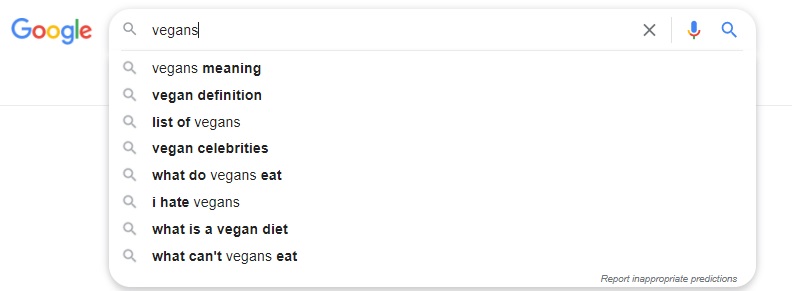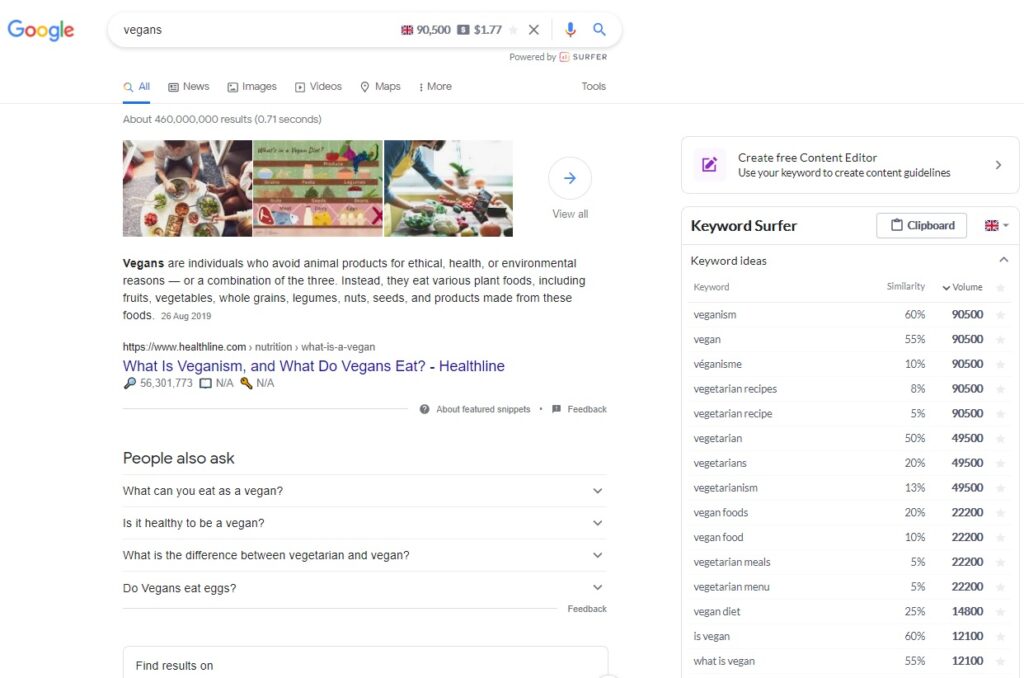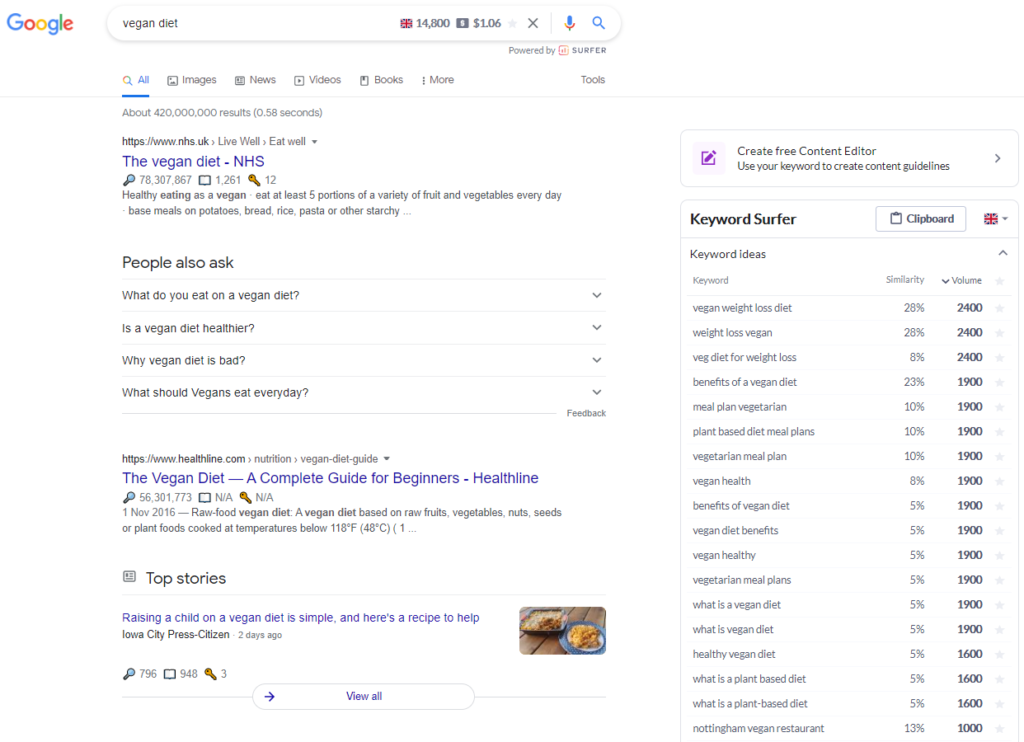Pinpoint precision. That’s a term you might associate with your favourite sports star or, dare we say it, the latest military technology. But, how much can you use it to describe the marketing activity in your business?
The truth is, thanks to the rise of the internet, it’s NEVER been as easy to target your ideal customer. Yet, so many businesses have yet to truly embrace niche marketing.
Is yours one of them? Find out as we explain the advantages and disadvantages of niche marketing so you can decide whether your marketing strategy needs to change.
What is niche marketing?
A ‘Niche’ is simply the industry, subject or category you market to. The key here is define your overall niche, then dig down deeper to find sub niches, which are simply smaller pockets of your broader audience.
The difference between and niche and mass markets
A mass marketing strategy focuses on the largest audience possible through broad advertising. For example, this could be a TV advert or a national billboard campaign. Mass marketing tries to target everyone in the hope that the net is cast wide enough to catch the right audience.
Niche marketing is about focusing on a smaller group with interests that align perfectly with a business’s products or services. Compared to mass marketing, you’re not casting your net as wide, but you’re specific with who you want to catch. They can both work, but it depends massively on your business and your market.
If you were selling sportswear, you might consider mass marketing as the sportswear industry is worth around $62 billion in the US alone (as of 2019). But for something more specialised, like vegan women’s sportswear from Unicorn Goods, the niche approach would be more beneficial, especially as the production costs would be higher.
Example of BROAD niche markets
Broad niches refer to the broadest categories you operate in. Here are a few broad niche examples:
- Vegans
- Babies
- Gaming
- Single parents
- Bodybuilding
- Work from home
There are actually broader niches which relate to these, such as Health which covers Vegans and Bodybuilding for instance. But huge, cover-all niches like Health are far too broad and at the minimum, you need to work with a broad niche as in the examples above.
Read: How To Use Microsoft Ads Demographic Targeting
Example of NARROW niche markets
These are the smaller sub niches you’ll find inside the broad niches.
Below is a list of narrow niche market examples, which relate to the examples in the last section:
- Vegans: Vegan recipes, Vegan clothing, Vegan holidays.
- Babies: Baby clothes, baby food, baby health.
- Gaming: Gaming consoles, gaming chairs, gaming walkthroughs.
- Single parents: SIngle parent dating, single parent advice, single parent support.
- Bodybuilding: Bodybuilding equipment, bodybuilding nutrition, bodybuilding clothing.
- Work from home: Work from home ideas, work from home franchise, work from home equipment
Breaking down your niche into smaller targeted sub-niches, is one of the best ways to increase your conversions. If you sell baby clothes for instance, make sure you run item specific ads such as ‘baby shoes’ to get laser target clicks.
How to find niche markets
Knowing the definition of a narrow niche market and a broad niche market is one thing. But how do you find them?
The answer: Google.
Once upon a time, you needed to use 5 tools for this kind of thing, but now so much of it can be done via Google with their vast array of features and browser extensions.
So, take to Google, consider your niche, lets say I have a website that’s aimed at vegans so I’ll type that in, and with the auto completion feature you’ll see the following:

Sure, maybe not everything there is relevant to market around. But even with something like “I hate vegans” you could twist that and create a cool little creative piece about the worst reasons for why people hate vegans.
Then, to really drill down into finding narrow niche markets, install the free Google Chrome extension Keyword Surfer and search for the same thing:

As you can see, you’ll now be given a bunch of keyword ideas on the right hand side inside your Google Search with the keyword volume. These ones in the example aren’t narrow markets as the volume is in the tens of thousands, but if I go for something a little bit different like vegan diet:

You’ll have a few more niche ideas. You can play around with this for hours, but what’s great about it all being on Google is that it’s so easy and quick to search for new ideas.
Advantages of niche marketing
Higher ROI
Because niche marketing focuses on specific groups of users, they’re more likely to buy your product than someone caught in a mass marketing net. Having lower traffic than a broader site might seem counterintuitive but, say Site A gets 10 purchases from 100 visits and Site B gets 10 purchases from 1000 visits, Site A has a 10% conversion rate while Site B has 1%. It’s quality over quantity and that’s how you keep your ROI (return on investment) high.
Niche marketing also makes it much easier to save money when it comes to marketing as larger mass marketing strategies tend to cost more the wider your span and if you’re aiming to get on TV or on a billboard.
Better customer loyalty
Customer loyalty is a defining feature of niche marketing. When you approach marketing in this way, you are showing customers the things that they want or need. If they visit, they already have the intent to buy compared to a casual browser. It can also give you an edge over competitors because when a product or service is niche, it stands out a lot more with unique features.
Less competition
Unlike mass marketing, niche marketing has a lot less competition. To reference the earlier example, not everyone makes vegan women’s sportswear for a number of reasons, so if can, you’ve beaten out any potential competition before you’ve started.
Generalised marketing campaigns don’t always stand out either. Unless you’re a larger, recognisable brand like Apple, you could get lost in a sea of other campaigns with better reaches.
Disadvantages of niche marketing
Smaller market
When you go sub niche, your target audience is obviously going to be smaller. However, once you try it, you should find that your conversions improve, sometimes dramatically. This is simply because you are super targeting your offers to your audience. So always compare your broad niche results to your sub niche results.
A higher ROI isn’t guaranteed
Obviously, working in smaller niches can affect your Return On Investment, but once again you should test this. The increase in conversions can also lower your ad spend, so you need to look at the big picture.
4 ways to drive traffic to your niche offers
Whether you decide on broad or narrow niches you need visitors and lots of them. So here are our 4 favorite ways to get as many targeted viewers for your offers:
SEO
SEO (search engine optimisation) is one that can make a real difference. It is all about being found through a search engine search. The people that find you from that and have found you for the right thing, will stick around; the rest will not. So think about the keywords that you use for your website, as that can make a difference to the types of consumers that find you online.
SEMrush have a excellent Keyword Magic Tool which can generate 2 million keyword ideas for SEO and PPC campaigns and group them by topic. If you find a handful of interesting keywords, you can save them in the Keyword Analyzer and estimate the number of clicks and how likely you’ll rank for them in the top 10 of the SERPs.
Need help with creating a successful SEO campaign? Adzooma’s SEO Performance Report will analyse your website and identify immediate actions you can take to improve. The report will give you the tools to:
- Get ahead of your competitors by finding keywords they’re missing
- Increase conversions by improving on-site user experience
- Compliment your campaigns with more organic traffic
The report is available to all Adzooma users, try the basic version for free to get a taste of what this report can offer. Not an Adzooma user? Sign up for free, here.
PPC
Niche marketing can also use PPC (pay per click) to create an element of demand. While there might not be any conscious demand for your products or services, you can use PPC as a strategy to pre-sell, to be able to generate some brand awareness and interest.
Our very own Adzooma helps make managing niche marketing campaigns on PPC both quicker and easier. If you’re going down this route, be sure to claim your free account and see what it can do for you.
Social media
Social media is another tool to help with niche marketing. You can be quite specific with any ads that you run, such as targeting certain locations, genders, or ages. You can also use analytics on your own channels, to find out about the people who follow you. Are they mainly of a particular age group, for example?
These elements can come together as you plan your strategy, which can include paid and organic social media, as you’ll know how best to aim your campaigns.
Of course, running profitable social media campaigns can take up a lot of your time. If you want to outsource the workload to someone who gets results, check out our list of recommended social media agencies:
Email marketing
As part of social media and your website, you should also look to make the most of email marketing. That can be a good way to know who is interested in what you do, and then analyse the kinds of content that they have interest in, when you send out emails.
Email marketing also works well with PPC as we covered in a recent article.
Need help setting up email marketing campaigns that actually get noticed? Moosend are an email marketing agency who will help your business deliver powerful emails that get opened and clicked every time – and their designs are pretty cool.
Is it possible to be too niche?
This can all depend on the research that you have done. Keyword research is a good way to find out how often particular keywords or phrases are searched for online and whether there are any seasonal trends.
It’s important to estimate a value of clicks and impressions, both from a PPC and SEO perspective. If there are hardly any people searching for your target keywords, and the attached value is low, then it could be too niche.
The important thing to remember is your definition of niche works for you and your business. Industry benchmarks help with general estimations but what you do isn’t what your competitors do.
Conclusion
When it comes to the most effective marketing method for your business, there isn’t a definitive choice between niche marketing or mass marketing. However, with research, planning, and the right tools, you can find that niche marketing could work well for your business; there are plenty of advantages for doing so.
Not sure if your marketing strategy is right? Why not run it past one of the expert agencies in the Adzooma Marketplace? Click here to get started.




